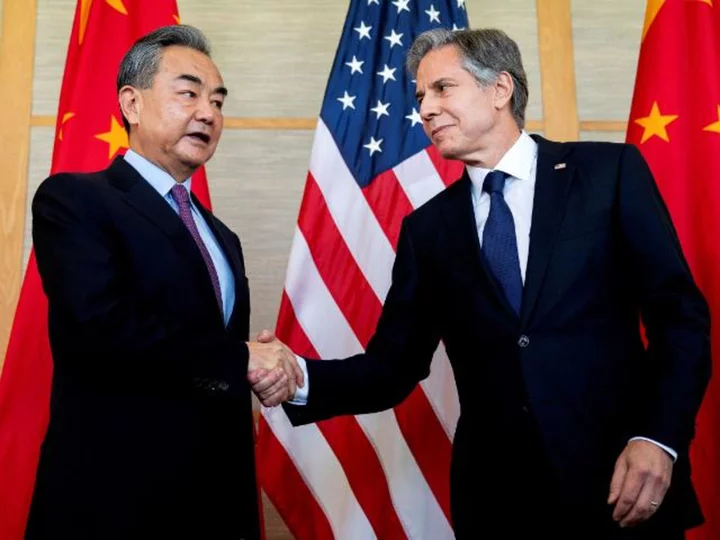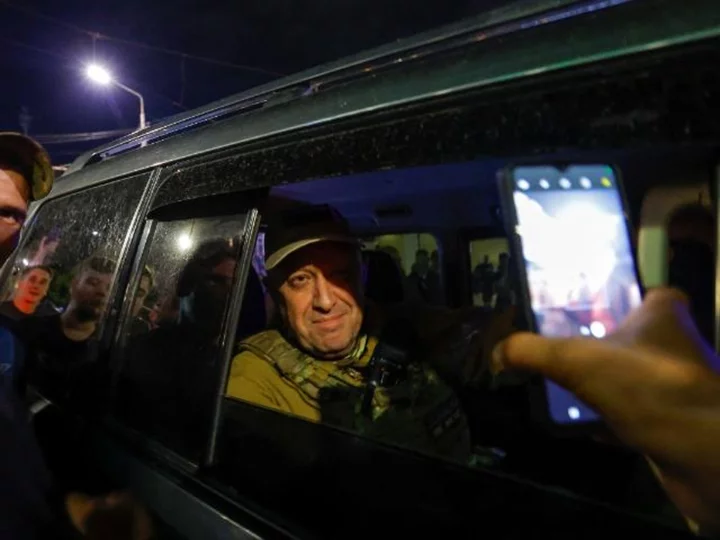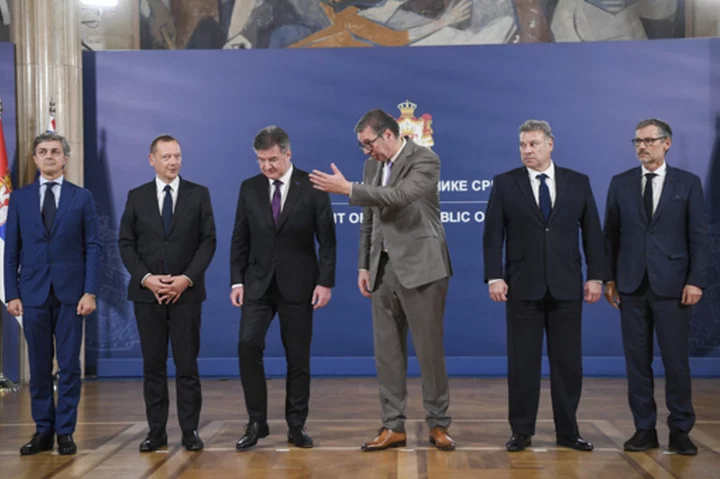US Secretary of State Antony Blinken is due to meet with top Chinese diplomat Wang Yi on Thursday -- the latest in a series of increased high-level interactions between Washington and Beijing.
Wang Yi, who is the top foreign policy chief for the Chinese Communist Party, is attending the diplomatic gathering in place of China's Foreign Minister, Qin Gang, who is unable to attend due to health reasons, Reuters reported, citing a spokesman for his ministry.
Their meeting on the sidelines of the ASEAN Foreign Ministers' Meeting in Jakarta comes less than a month after the two met in Beijing, holding what the top US diplomat called a "candid and constructive" conversation.
Efforts to stabilize the relationship between the world's two biggest economies have intensified in recent months following a period of immense friction between the United States and China.
The Biden administration feels that the US and China are "getting back to normal in the sense of pace of diplomacy," a senior administration official told CNN this week.
Following Blinken's trip to Beijing in mid-June, Treasury Secretary Janet Yellen traveled to the Chinese capital last week, and Climate Envoy John Kerry is due to travel there in the coming days.
Both Blinken and Yellen claimed they had made some progress in efforts to re-establish bilateral communications aimed at responsibly managing the relationship.
"It was clear coming in that the relationship was at a point of instability," Blinken said at a news conference at the end of his trip last month. "And both sides recognized the need to work to stabilize it."
"We're not going to have success on every issue between us on any given day, but in a whole variety of areas, on the terms that we set for this trip, we have made progress and we are moving forward," he said, stressing that "none of this gets resolved with one visit, one trip, one conversation. It's a process."
"Broadly speaking, I believe that my bilateral meetings -- which totaled about 10 hours over two days -- served as a step forward in our effort to put the US-China relationship on surer footing," Yellen said Sunday, at the end of her trip.
"Even where we don't see eye-to-eye, I believe there is clear value in the frank and in-depth discussions we had on the opportunities and challenges in our relationship, and the better understanding it gave us of each country's actions and intentions," she said.
Numerous key issues between the US and China remain. High-level military to military communication channels remain frozen, with Beijing demanding that the US lift sanctions on its defense chief before conversations take place. But right now that is "not being actively considered," the senior administration official said.
"Even if that [issue] were to be removed -- they've got another long list of reasons that they can't meet, or cooperate or coordinate or have working level contact. So I don't see that as something on the horizon," the official said.
The Biden administration is eyeing how to narrow in on issues where both sides can make progress.
"The next step in my view is to try to figure out how we can find ways that we have narrow areas we might be able to work -- in parallel or towards a common goal," the senior administration official said. "That is, we say climate or health or Counter Narcotics."
But there has been no tangible progress between the US and China on tackling the issue of fentanyl flowing into the US, despite Blinken's remarks in Beijing last month that the two sides would work toward setting up a working group on the issue.
Many of the precursor chemicals used to manufacture fentanyl come from China. Chinese officials have continued to say they cannot cooperate with the US on the challenge because of sanctions on a Chinese lab and the recent arrest of Chinese nationals in Fiji who were involved in drug trafficking to the US and Mexico, the official said.
There are other thorny issues between the two countries.
Just this week, Microsoft announced it had discovered that China-based hackers had breached email accounts at two-dozen organizations, including some US government agencies, in an apparent spying campaign aimed at acquiring sensitive information.
State Department spokesperson Matthew Miller said Wednesday that the agency detected the "anomalous activity" last month but wouldn't say if it was before or after Blinken's trip to China. Miller said that the US government had not made a public attribution for who was responsible for the breach, but it has noted Microsoft's attribution to China.









